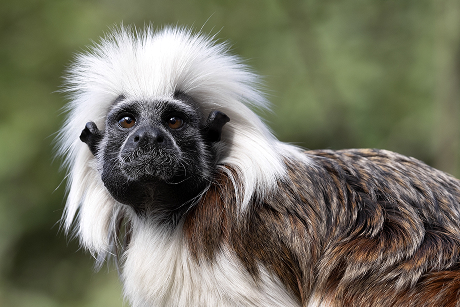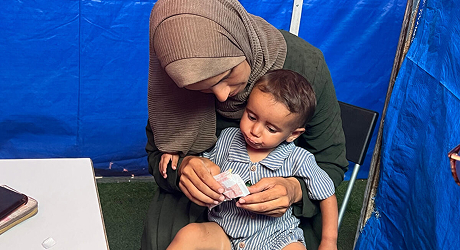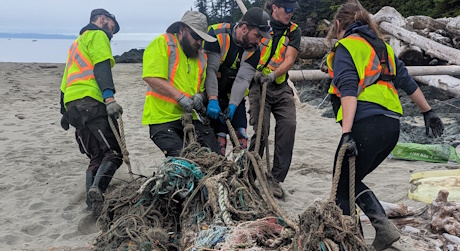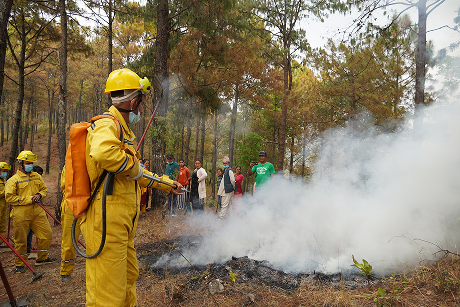Footprints Project
Since 2005, travelers like you have helped us change the world through micro-donations.
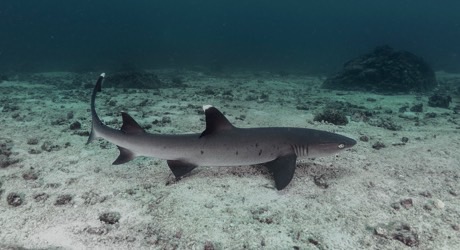
-
A total of
8948
Travelers
-
donated
$20002.18
(100% funded) -
to help improve
Sustainable Communities
-
impacting
50
people -
in
Panama
Project Background
Panama has emerged as one of the key traders of shark products and a key connector of critical shark habitats throughout the Eastern Tropical Pacific. Although generally little known, Coiba Island in the Gulf of Chriqui is considered one of the best diving sites in the Western Hemisphere, and an increasingly popular tourist destination. Coiba Island and its surrounding waters are also a UNESCO World Heritage site and National Park.
Coiba and its surrounding waters are thought to be an important site for both whitetip sharks and highly migratory threatened shark species including scalloped hammerheads and whale sharks. Although dive operators have noted decreased numbers of sharks, especially hammerheads, in the past two decades, baseline data for the park is lacking and prevents a full understanding of the abundance, distribution and diversity of shark communities and associated fisheries.
Artisanal fisheries, including the use of longlines to catch sharks, are legally permitted in many areas close to the National Park, and there are pending plans for large-scale developments on the island that would significantly increase impacts to the site’s fish populations. The need for action is urgent as Coiba is currently teetering on the edge of a red listing as a World Heritage Site in danger if the threat of unsustainable fisheries is not abated.
Key project objectives
The project aimed to engage visitors, fishers, local guides and divers in monitoring and citizen science through recording of sightings and shark and ray photos identification. This, coupled with conservation education, will lay a foundation for local conservation action and highlight sharks and rays as non-consumptive species of value to local communities and the national economy.
The ultimate goal of this project is to expand beyond Coiba to promote the understanding, management, and conservation action for sharks and rays throughout Panama while supporting the development of conscientious and locally based shark tourism.
A successful wrap to the project would encompass the completion of all activities programmed, an engaged constituency, a body of knowledge that responds to informational needs to guide management and conservation and possible solutions identified with fishers for reducing fishing effort on threatened species of sharks.
The project will have created a permanent sampling method and sites and lay the foundation for the longer-term change in attitudes and behavior that are required for locally led conservation of sharks and rays. Lastly, all generated information will provide requested inputs for policy- and decision-making for sharks at the local and national levels, enabling Panama to better meet its World Heritage and international convention obligations.
Were you able to successfully complete the project?
We were partially successful in completing the project with the fisheries independent survey completed. The pandemic required a pivot away from citizen science and towards community-based landings as tourism was difficult to undertake due to government restrictions.
We are keen to undertake the citizen science project in 2025, now that travel is unfettered and we have both established and nurtured relationships with the communities around Coiba National Park and 14 of the site's tourism providers.
What's next?
The forced pandemic pivot towards Community Fisheries Research that collected fine scale data on fisheries (with a focus on sharks – especially threatened species) has proven very successful and has paved the road for the next project phase. Communities will be hard pressed to be self-reliant in monitoring as the cost and priority of this work falls below basic needs.
To improve their chances for more employment and integration of science in their decision-making, we are now seeking to build the skills of the Community Researchers in field monitoring of key species such as sharks, continue work with the communities to improve the sustainability of their fisheries (reduce use of nets is a first step as we have successfully done in Belize), assess community resilience to pandemic and climate change impacts and help them build a road map for greater sustainability that further highlights nurturing of community-based tourism.
Desired goals vs. Project Outcomes
1. Long-term standardized and participatory monitoring in Coiba National Park focused on sharks and rays is established and adopted by managers as standard using fisheries-independent methods.
- We completed the fisheries independent survey of marine megafauna using baited remote underwater video installations with local guides and fishers from the community of Santa Catalina. Out of this work we produced a thesis, a project brief and are drafting a scientific paper. A key finding is that the Coiba National Park is not adequately protecting its sharks as population abundance inside the park is not higher than outside the boundaries. The BRUVs have been identified as a low-cost standardized methodology that the Ministry of the Environment has adopted in its toolbox of methods.
2. Visitors and local guides and divers engaged in a collaborative and comprehensive citizen science project to provide long-term data on sharks and rays in Coiba that complements and expands the punctual long-term monitoring efforts.
- Not completed, mainly due to pandemic shut down of tourism and schools. We now have this project planned for Panama in 2025, providing we can secure the necessary funding.
3. Tourism sector and two key coastal fishing communities engaged in education and outreach, demonstrating a change in negative perceptions towards sharks and consumer behavior over the long term.
- The tourism sector approach remains incomplete, mostly due to pandemic shutdown of tourism and schools. We were however able to engage members of 4 communities through 11 community-based meetings and our popular community researcher program that has employed 24 young community people (mostly young women) to conduct fisheries landings in their communities and train others in fisheries monitoring science.
4. Coiba National Park decision-makers and managers integrate monitoring and citizen science results into their management plans and use them to guide enforcement efforts.
- We have been sharing the results from the community fisheries monitoring and the fisheries independent survey with communities, fishers, tour guides and decision-makers. The findings for the park were unsurprising to our public and decision-makers and yet the results of the community fisheries monitoring has the communities worried as nearly all fisheries are capturing juvenile fish, leaving few to reproduce. We also established MOUs with the COIBA AIP that leads science in the park and environs, with the Ministry for the Environment and the Fisheries Department to improve the integration of our project's results in decision-making.
What challenges did you and the team experience/discover during the implementation of the project?
We encountered multiple challenges during implementation although some of these became opportunities that led to greater success of the project. These include:
- The pandemic - Panama shut down to all movement and then predictable movement for 18 months starting in March 2020.
- All tourism or access to the Coiba National Park was halted until fall of 2021, after which only a trickle of tourists showed up until later in 2022.
- When we were able to install underwater acoustic receivers to track sharks, several key instruments were stolen and the animals did not show up.
- Eight close members of my team died between the grant acceptance and January of this year. This slowed the continuance of our projects considerably.
Is there anything additional you would have liked Adventure Travel Conservation Fund's support on?
We are grateful to ATCF who has been marvelous with their patience and flexibility towards our project. We delivered a considerable amount for 20k (with additional co-funding as marine and fisheries field work is costly), laid the basis for long-term work, demonstrated to our Panamanian colleagues a new integrative and democratic approach to science which we are now seeing other colleagues starting to adopt. Sharing our story, work and our hopes for next stages are all aspects for which we would much appreciate ATCF support.
Traveling soon? When you buy travel insurance with us, you can make a contribution towards a cause you care about.
Get a quote